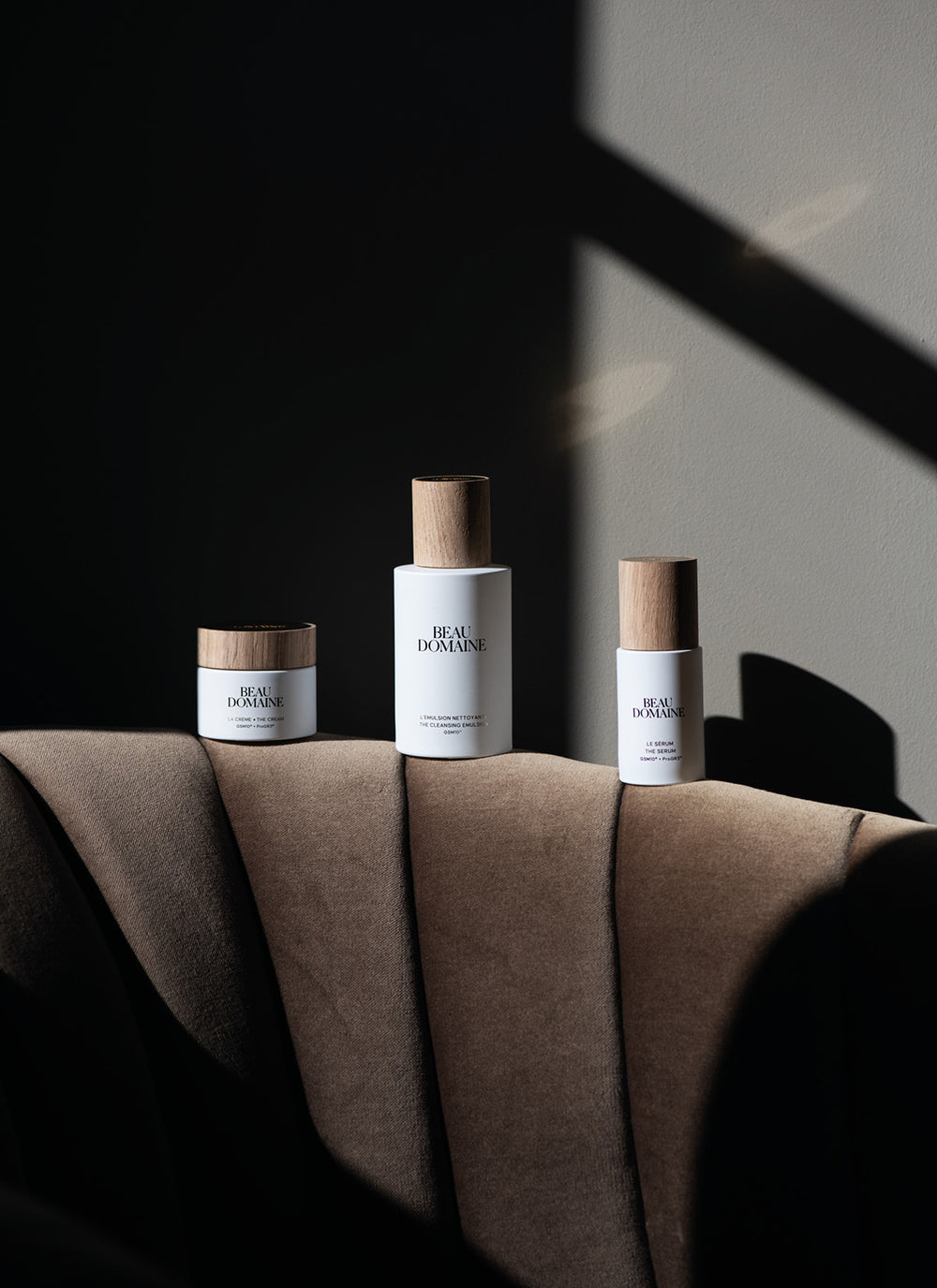Achieving radiant and healthy skin involves more than just putting on a few products. Understanding your skin type, addressing specific concerns, and adapting your routine to your lifestyle are key components of an effective skincare regimen. In this guide, we'll explore the essentials of a skincare routine and help you determine the optimal number of products for your unique needs.

How many skincare products should you use ?
Summary
- - Skin Care Products Essentials
- - Adapt Your Skincare Routine to Your Skin Type
- - Adapt Your Skincare Products to Your Skin Concerns
- - Choose the Amount of Products You Use Depending on Your Lifestyle
Share this article
Skin Care Products Essentials
Face Cleanser: The Start of Any Skin Care Routine
The foundation of any skincare routine is a clean canvas. A gentle face cleanser is the first step in ensuring your skin is free from impurities, excess oil, and makeup. Look for a cleanser that suits your skin type, whether you have dry, oily, normal, or combination skin. For those with dry skin, opt for gentle cleansers that provide hydration. If you have oily skin, choose oil-free, non-comedogenic options to control excess oil production. Whatever your skin type, cleansing sets the stage for the rest of your routine.
Face Cream: The Essential Role of Moisturizers
Moisturizers play a crucial role in maintaining skin health by providing hydration and preventing dryness. Choose a face cream with ingredients tailored to your skin type. For dry skin, look for moisturizers containing hyaluronic acid to lock in moisture. If you have oily skin, opt for lightweight moisturizers that won't clog pores. Normal skin benefits from a balanced moisturizer, while those with combination skin can opt for light yet moisturizing products, like The Fluid Cream by Le Domaine.
Sunscreen: Dermatologists' Best Advice
Sunscreen is a non-negotiable step in any skincare routine, regardless of skin type or skin tone. Shielding your skin from harmful UV rays not only prevents premature aging but also reduces the risk of skin cancer. Regular sunscreen application is a simple yet powerful way to protect your skin and maintain its overall health.

Adapt Your Skincare Routine to Your Skin Type
Dry Skin
Dry skin will benefit from the addition of certain products to their routine, for example:
Face Toners: Essences or face toners help protect the skin from dryness caused by hard water.
Moisturizing serum: A moisturizing serum can add an extra layer of hydration. Look for serums containing moisturizing ingredients such as hyaluronic acid, vitamin B5 (panthenol) or ceramides.
Gentle exfoliation: to remove dead skin cells. Use a gentle chemical exfoliant based on AHA or BHA once a week.
Moisturizing mask: A weekly moisturizing mask can revitalize dry skin. Look for masks containing soothing ingredients such as aloe vera, argan oil or olive oil.
Oily Skin
Astringent toner: to help tighten pores and reduce shine. Look for an alcohol-free toner to avoid drying out the skin.
Mattifying serum: A mattifying serum can help control shine throughout the day. Look for serums containing mattifying ingredients such as salicylic acid.
Regular exfoliation: to remove dead skin cells once or twice a week.
Purifying mask: A purifying mask based on clay or activated charcoal can help unclog pores and reduce excess sebum. Use once a week.
While combination skin may need to combine some of these elements to address the nature of their complexion, normal skin does not have any specific needs based on their skin type. However, just like any other skin type, they may need specific care due to other skin concerns.

Adapt Your Skincare Products to Your Skin Concerns
The Usual Suspects: Sensitive, Dehydrated or Acne-Prone Skin
Sensitive, dehydrated or acne-prone skin requires targeted solutions. Serums would be your weapon of choice, although masks can also help. It all comes down to ingredient selection. Choose products with soothing active ingredients like chamomile or aloe vera for sensitive skin. Hydrate dehydrated skin with products containing hyaluronic acid, and for acne-prone skin, incorporate formulas with salicylic acid or benzoyl peroxide to address specific concerns.
Planning for the Future: Preventing the Visible Signs of Aging
Preventing the visible signs of aging requires a proactive approach. Antioxidants, retinoids, and peptides are essential ingredients in products designed to reduce wrinkles and fine lines. Integrate serums, like The Serum by Beau Domaine and creams with these elements into your routine to promote collagen production and maintain youthful-looking skin.

Choose the Amount of Products You Use Depending on Your Lifestyle
Efficient Essential Routine for a Busy Life
Regularity is the key to any effective skincare routine. It's better to have a very simple 2 or 3 step routine that you use every day than a longer one that you might want to skip when you're in a hurry in the morning or tired at night.
Streamline your regimen with essential products, focusing on a cleanser, moisturizer, and sunscreen. This quick routine ensures that you maintain healthy skin even on the busiest days.
Layering: For Those Who Like to Take the Time
If skin care is something you enjoy and take the time to do, don't hesitate to incorporate a layering technique into your daily routine. Adding serums, essences, eye creams or sleep masks to a routine is a common trend in Asian skin care that has captured the hearts of many beauty professionals.
However, don't overdo it. It's also important not to overload your skin with too many products. Excessive use of products can lead to irritation and counterproductive results.
Alternating Routines for Weekdays and Weekends
You can also adapt your skincare routine based on your weekly schedule. Consider a simplified routine on weekdays when time is limited, and opt for a more elaborate regimen over the weekends. This alternating approach provides the flexibility needed to maintain skin health while accommodating your lifestyle.
In conclusion, the optimal number of skincare products varies based on individual needs, skin type, and lifestyle. By tailoring your routine to your specific requirements, you can achieve glowing, healthy skin. Remember, consistency is key, and finding the right balance ensures that your skincare routine remains both effective and enjoyable. A last word of advice: pay attention to how your skin feels and looks. If it becomes sensitive, red or irritated, it's a sign that you may be using too many products, or that a specific product isn't right for your skin.























